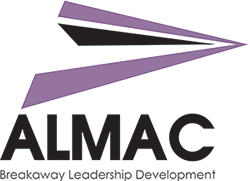What happens if you put 10 economists in a room? You’ll get 11 opinions, as the old joke goes. I find it similar with definitions of mentoring and coaching, and the difference between them. Put in an online search and you’ll find the range of definitions and descriptions will give you enough reading material to see you through to next year.
Many people use the terms interchangeably, and quite a number use the term ‘coaching and mentoring’ as though it is one activity. Full disclosure: I was one of these people when I started studying for my Level 7 Certificate in Executive Coaching and Mentoring. I knew they were different but fell into the trap of considering them identical. Fortunately, I was made to think differently by my excellent tutor, Dr Andy Miles of Made to Measure Mentoring.
However, as I read more and researched further, I found there were not many definitions of either mentoring or coaching that aligned fully with my understanding. Few clearly articulated to me what each of these concepts really is and what they deliver. Indeed, that was part of the problem: some definitions focused on process and some on outputs. Others were ethereally descriptive which really didn’t work for me at all.
Here are some examples of the variances in coaching definitions:
‘The process of instruction, direction, feedback and support in order to improve performance and results.’
‘Coaching provides a safe place for clients to identify what is and what is not working, try new behaviours, and learn from their new experiences.’
And here are two examples that describe different attributes of mentoring, none of which overlap:
‘Mentoring is to support and encourage people to manage their own learning in order that they may maximise their potential, develop their skills, improve their performance and become the person they want to be.’
‘Mentoring is a one-to-one relationship between a less experienced person (mentee) and a more experienced person (mentor), which provides support and two-way learning.’
Does it matter?
I think it does. Mentoring and coaching are different. Which one to undertake depends on the desired development. Each requires subtly different skills. If practitioners and customers don’t have a clear understanding of what mentoring is useful for in contrast to the benefits of coaching, and if they don’t know how each is conducted, then confusion will reign. The required development will not be achieved and no one will be satisfied.
Over the last year, I have been asked to coach (by people who should know the difference), when mentoring is really what they meant and wanted. Equally, I have been engaged as a mentor, when the majority of discussions have been coaching conversations. Don’t get me wrong, I think there is some cross-over between the two concepts. They are both to do with personal or professional development, after all. I think it is natural that, on occasions, elements of mentoring may come into a coaching conversation if the coach has deep experience of the skill being developed. There may also be elements of coaching in a mentoring discussion, especially if the mentee is particularly inexperienced.
Nevertheless, at the start of a developmental relationship, both practitioner and client should understand what they are setting out to achieve and have a good understanding of the best approach to take. Clarity matters.
So what did I do?
Well, I think against the preferred judgment of my tutor, for the purpose of my research paper, I devised my own definitions. I still find them useful to refer to when engaging with a new organisation, just to settle myself that we are clear about what we are discussing. These are the definitions I use:
Coaching – is a developmental relationship between a coach and an individual or group that is, typically, fairly structured, focused on specific skills to achieve agreed goals over a comparatively short timeframe. The coach does not need direct experience of the client’s role, but must have reasonable knowledge of the skills being developed.
Mentoring – is a developmental relationship between a mentor and an individual that is, typically, relatively informal, focused on broad personal or professional themes to an agenda set by the client, over a comparatively long term. The mentor will tend to be more experienced than the client and will pass on pertinent experience and knowledge during the mentoring relationship.
Common to both is the characteristic of helping the client find their own solutions to specific developmental issues through questioning and self-realisation.



